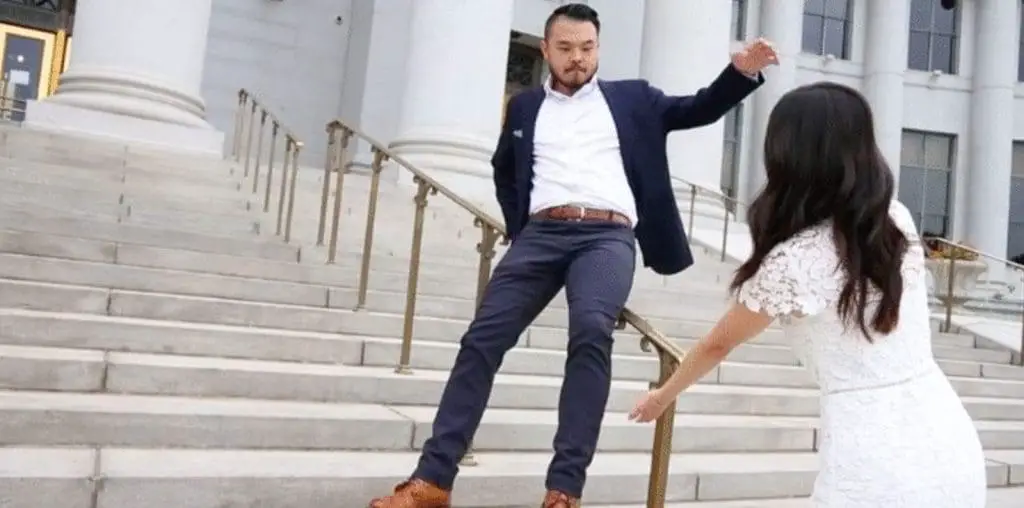
French actor Dominique Pinon, who has frequently appeared in Jean-Pierre Jeunet films (“The City of Lost Children,” “Amelie,” “A Very Long Engagement”), brings an idiosyncratic spark to his characters. In the short film “Lift” (Hugues Dalton and Jeff Garton, 2004), Pinon channels the same quirkiness as a love-struck elevator attendant in a twenty-storied office building.
The film begins with a close-up of red carpet, red slacks, and black shoes accompanied by the sort of piano music one would hear in a ballet class. Coincidentally, the feet wearing the shoes rise onto their toes and then into the air. The man who owns the feet is Otis (Pinon), the elevator man. It is quickly made apparent that his levitation is just part of a dream, and the world in which he lives is no less peculiar.
After Otis wakes up, you see that he is “velcroed” to the bed. While he finishes his morning rituals, you realize that the elevator attendant actually lives in the elevator. The bed, the sink, and the alarm clock are attached to panels that can fold into the elevator walls. Otis spends the rest of the thirty minute-long “Lift” operating the elevator for an assortment of people and courting K (Claude Vallee), a typist who works in the building, by sending her a pop-up letter. Otis is no taller than five feet and exudes a slight scruffiness. K is at least five-foot-five and wears clothes that make her look more like the headmistress of a boarding school. This mismatched image contributes to the bizarreness and fantastic quality of the story world.
Whether or not the filmmakers had Pinon in mind when writing “Lift,” and accordingly designed the narrative and physical environment around him, the way in which he interacts with his environment suggests that down to a mechanical level, his surroundings accommodate him as much as possible. From the inter-office mail courier’s schedule to the elevator passengers, it’s as though unseen forces are conspiring to aid in the process by which Otis makes his presence known to K. A scene near the end of the thirty-minute short suggests that Otis has sent the typist of his affections a handful of letters before. These notes are creatively made brochures that inspire K to type passages of prose. He can hear her, and amazingly can tell what she is typing by the sound of the keys. He transcribes her words into a notebook, enabling him to savor a kind of intellectual intimacy.
Like the secrets and dreams that Otis shares with K, Dalton and Garton skillfully impart to the viewer a taste of their imagination. Should “Lift” play at a film festival coming to your town, drop what you’re doing and go see it.
